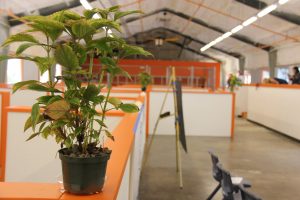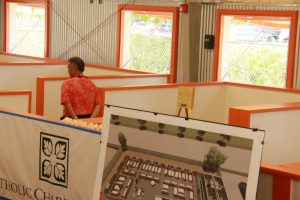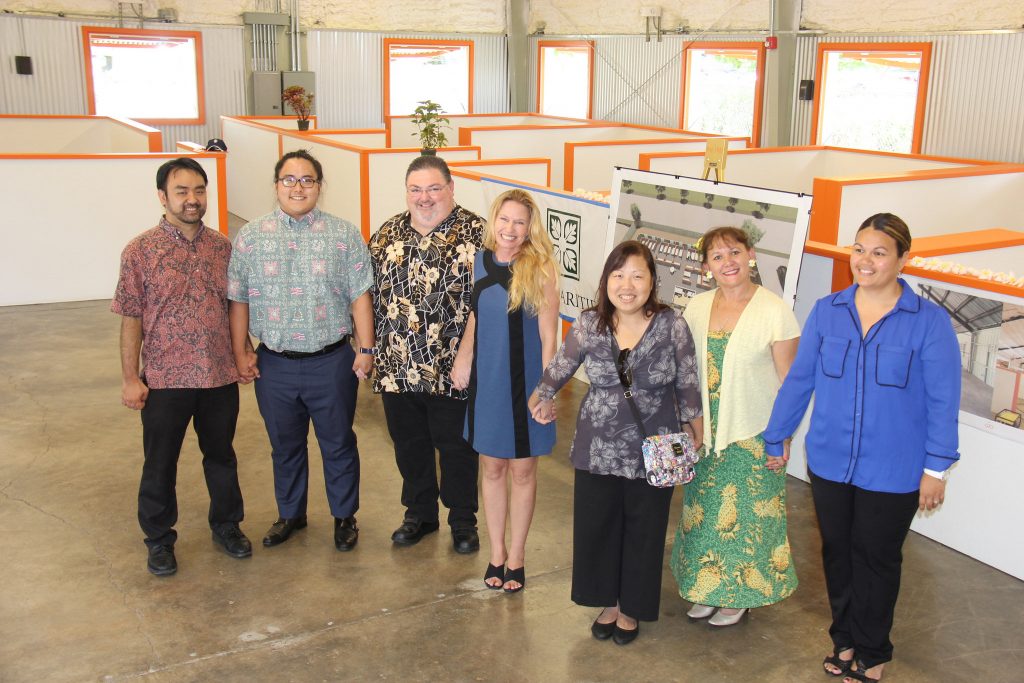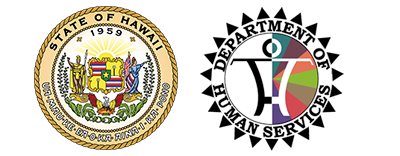Whether through provision of DHS benefits, programs, and services or the support provided to the divisions and agencies that deliver them, our collective commitment is the same: to improve the well-being of Hawai‘i’s families. Our implementation of ‘Ohana Nui aims to make strategic, intentional changes that enable us to reach our commitment even more effectively. ‘Ohana Nui is based on national data and best practices that a multigenerational philosophy of service delivery is more effective than one that separately addresses individuals’ needs. This column will bring you strategies, success stories, and regular updates as we work across the department to intentionally create better outcomes for Hawai‘i through ‘Ohana Nui. [/su_Note]
Thanks to Director Pankaj Bhanot, division administrators and staff officers – collectively known as the DHS ‘Ohana Nui Advisory Group – the introduction of ‘Ohana Nui to the department is off to a great start. By now you have likely heard about ‘Ohana Nui in your division or work group, and more important, have begun thinking about and experimenting with ways that ‘Ohana Nui can be applied to the work you do every day.
Already at work, the ‘Ohana Nui Implementation Workgroup, comprised of representatives from each division, staff office, agency, and the governor’s office, have identified several pilot sites to which ‘Ohana Nui principles can be immediately applied. One such site is the homeless Family Assessment Center (FAC). The FAC is not a shelter but instead was designed intentionally to be a temporary stop-over, a place to provide respite for families while quickly and efficiently determining their needs before they move into permanent housing.

The Kaka‘ako Family Assessment Center — from its inception to current operation — is an embodiment of ‘Ohana Nui principles.
The FAC originated from ‘Ohana Nui principles. In the fall of 2015, Representative Sylvia Luke and Senator Jill Tokuda identified a former maintenance shed in Kaka’ako as a potential location for a new homeless facility. Over the next year, multiple state agencies and private sector volunteers – including the Hawai‘i Community Development Authority (HCDA), Department of Accounting and General Services (DAGS), DHS Homeless Programs Office, and pro bono architects and engineers from Group 70 and Douglas Engineering – collaborated to transform the facility from a maintenance shed into an assessment center that will serve over 400 persons over the next two years. This partnership between the legislative and executive branches and the private sector represents the essence of ‘Ohana Nui – breaking down silos and drawing upon each other’s strengths to address an identified need in the community.

Gov. David Ige tours the Family Assessment at its opening Sept. 2016.
Our Benefit, Employment and Support Services Division (BESSD) Homeless Programs Office leads this project and works closely with the governor’s office and our non-profit community partner, Catholic Charities, who provides the assessment and family case management. While Catholic Charities can offer many of the services necessary to support these families toward self-sufficiency, they are unable to do it all. ‘Ohana Nui provides the FAC a philosophy to bring those necessary services to families who need them.
Eager to apply the philosophy of ‘Ohana Nui to the FAC, a number of DHS programs, other state agencies and community partners are coming together to help families achieve self-sufficiency.
- DHS BESSD First-To-Work/TANF and Eligibility teams as well as the Med-QUEST Division are getting involved providing access to programs and benefits.
- Non-profit Partners in Development offers its traveling pre-school program for the keiki at the FAC while the Department of Education is involved to ensure that the school-age children are enrolled in and get to school.
- The Department of Health has been invited to provide nursing services, and their WIC program team is developing a special, modified package of non-perishable items that do not require refrigeration for families at the FAC.
- Kōkua Kalihi Valley may also become involved if a family is of Micronesian descent, helping them access additional programs and services designed around their culture and unique situation in Hawai‘i.
- Home visiting services will be coordinated between DHS and DOH once a family moves to permanent housing, ensuring continuity of health care services for families.
This comprehensive approach is possible because ‘Ohana Nui has us moving beyond what has become “historic silos” to create integrated solutions aimed at improving the well-being of the whole family. And, we’re taking this comprehensive approach without any new resources.

DHS Homeless Programs Office and Governor’s Coordinator on Homelessness staff members hand in hand at the opening of the Family Assessment Center.
The Family Assessment Center is just one example of the immediate application of the ‘Ohana Nui philosophy to a DHS “site.” It brings together DHS teams from across the department to partner with others beyond DHS to do what they’ve always done – provide excellent service and care to Hawai‘i’s families – but in a different way, irrespective of the traditional silos that funding streams have historically dictated.
Although the FAC may be one of the more obvious places for application of the “whole family” principles, ‘Ohana Nui is not reserved for just programs. Planning is underway with our Human Resources (PERS) team to support and incorporate ‘Ohana Nui in several areas including new employee orientation and department-wide on-demand training. Eventually, we’d like to confirm our commitment to ‘Ohana Nui through changes to our work in position descriptions and performance metrics, and perhaps even to our system of rewards and recognition.
So, whether you have direct interaction with the families we serve or indirectly support our team members who do, there is opportunity to apply principles of ‘Ohana Nui. We ask you to continue doing your good work, while thinking differently about how to do it. We look forward to learning about how ‘Ohana Nui is reflected in what you do everyday.
Note: Strategic Intention is a regular column featuring proven strategies, real stories and meaningful successes resulting from the application of ‘Ohana Nui to the good work being done by DHS teams. For questions, comments or to share your team’s ‘Ohana Nui outcomes, please contact Kimberly Miyazawa Frank at [email protected].
